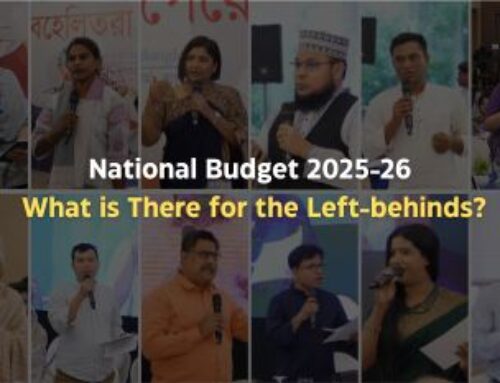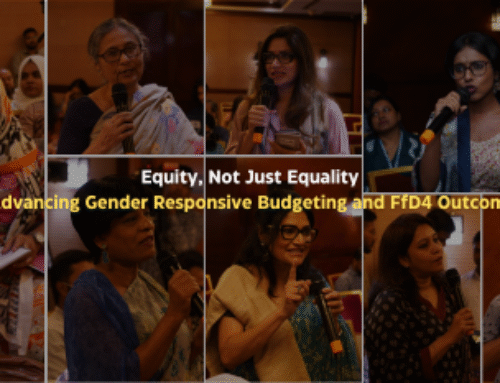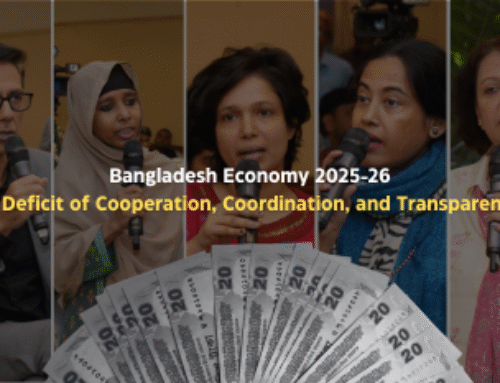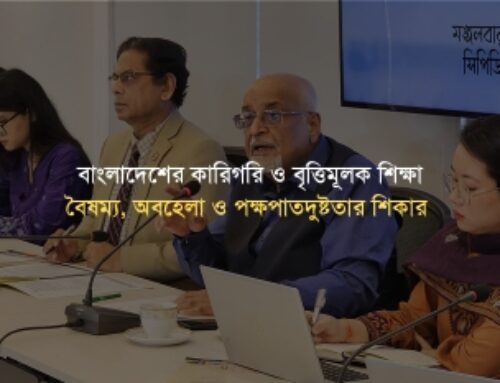Presentation on Understanding Climate Change from SDG Perspective by Dr Saleemul Huq
For a least developed country (LDC), like Bangladesh, the success in achieving the Sustainable Development Goals (SDGs) will critically hinge upon the strategies which will tag climate concerns with other development goals and targets. The policymakers must recognise that climate and sustainable development agendas are no longer isolated spheres in a Venn diagram. The climate challenges need to be addressed cohesively with all national plans and policies to ensure environmental justice, so that climate victims who are mostly from vulnerable groups are not left behind.
Experts and policymakers shared these views at a seminar titled “Understanding Climate Change from SDG Perspective” held on 22 May 2017 at the Westin Hotel Dhaka. The seminar was organised jointly by the International Centre for Climate Change and Development (ICCCAD) and the Citizen’s Platform for SDGs, Bangladesh.
Dr Saleemul Huq, Director, ICCCAD presented the keynote on the subject. He stressed on the importance of institutionalising Paris Agreement and SDGs in a way that builds on low carbon and climate resilient development in Bangladesh. He also emphasised on the importance of stronger cooperation and coordination between the climate experts and the experts working in development sectors.
He further stated that, climate change will add to the cost of achieving SDGs in countries like Bangladesh. He said, the country’s likely graduation from UN’s Least Developed Countries (LDC) group by 2024 will limit its access to low-cost financing and support measures. To receive the much needed climate funds, we have to demonstrate better governance to the rest of the world, he added.
While speaking as Chief Guest, Dr Shamsul Alam, Member (Senior Secretary), General Economics Division, Government of Bangladesh stressed on the issue of coordination, the ‘Spirit of Coordination’ he believes is required to achieve the SDGs. Dr Alam informed the dialogue that the 7th FYP integrates both climate change and SDGs into its action plans. However, he did mention that the awareness of climate change among all the stakeholders within the government is in many ways inadequate and there is room for improvement. “Money would not be the problem, as perceived by many, for the achievement of SDGs. What the country needs is effective action plans to utilise the available funds”, he went on to say.
Education can be a major change maker, said Ms Shaheen Anam, Executive Director of Manusher Jonno Foundation (MJF), and suggested to include the climate related information in the curricula. She also observed that poor people of our country, especially women and children, are the most vulnerable to the climate related disasters and called for ensuring climate justice by integrating it into the national system.
Dr Ainun Nishat, Professor Emeritus noted that ignorance about climate change may bring adverse consequences on food security, which will ultimately affect all the other SDG goals. About the recent crisis in the Haor basin, he indicated that climate change induced untimely rainfall was one of the reasons of the flash flood. The policies and guiding documents need to be updated and climate change needs to be mainstreamed within the text to avoid such crisis in future, added Dr Nishat.
Approach needs to be inclusive, participatory, integrated and transformative to achieve the SDGs and Paris Agreement, observed Dr A Atiq Rahman, Executive Director, Bangladesh Centre for Advanced Studies (BCAS). All the relevant parties have to play their roles effectively to ensure smooth and timely implementation of SDGs, he added.
Dr Debapriya Bhattacharya, Convenor, Citizen’s Platform for SDGs, Bangladesh summarised the session as Chair. He emphasised on better understanding and awareness of climate change, mainstreaming of climate change into national policies and capacity building of stakeholders. Finance, innovation and partnership are the three most critical areas which need to be addressed immediately. “SDGs are against environmental discrimination and for environmental justice and this will take Bangladesh forward”, was Dr Bhattacharya’s closing remark.
The event was participated by climate experts, researchers, economists, development practitioners among others.






